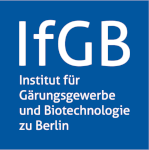BioProScale 2021 - Scientific Poster
Live discussions with the poster presenters in 8 video sessions on Monday and Tueday afternoon!
- P01: Design and upscaling of Pseudomonas putida fermentations for robust biomanufacturing
Jesper W. Jensen et al, Technical University of Denmark - P02: Insights into the role of sigma factor orf21 in clavulanic acid production by Streptomyces clavuligerus ATCC27064
Patiño Cervantes L.F. et al, Universidad de Antioquia, Colombia - P03: Genome mining of Streptomyces strains and its potential to identify new compounds with antimicrobial activity
Carlos Caicedo-Montoya et al Universidad de Antioquia, Colombia - P04: Cell-free bosynthesis of the nonribosomal peptide antibiotic valinomycin
Jian Li, ShanghaiTech University - P05: Development of a P. pastoris strain for the recombinant production of peptide-based antibiotics in eukaryotic cells
Lisa Michel et al, Hamburg University of Applied Sciences - P06: Experimental studies on the isolation of photobiont and mycobiont partners of lichens for controlled co-cultivation and production of secondary substances
Zakieh Zakeri et al, Technische Universität Berlin - P07: Comparison of different analytical methods for the assessment of viability during the production and storage of yeast preparations
Martin Senz et al, VLB Berlin - P08: Applying Dielectrophoresis to Improve a Microring Resonator Biosensor Platform
Anders Henriksson et al, Technische Universität Berlin - P09: Effect of oscillatory cultivation conditions on the macromorphology in Yarrowia lipolytica cultivations
Jasmina Cziommer et al, Technische Universität Berlin - P10: Control of macromorphology and the implications on product formation in Aspergillus niger
Tolue Kheirkhah et al, Technische Universität Berlin - P11: Cultured meat production in a 2D rocking bioreactor
Tobias Höing, MosaMeat - P12: From micro to macro: a study on the volumetric power input in microtiter plates and its use as a strategy for scale-up in downstream processing
Ignacio Montes-Serrano et al Austrian Centre of Biotechnology - P13: Towards smart factories: Data-driven modeling approaches in bioprocessing
Jonathan Sturm, Westfälische Hochschule Recklinghausen - P14: A novel gradient-based monitored dark fermentation of biogenic feedstocks for material use in plug-flow reactors
Marion Longis et al,Technische Universität Berlin - P15: BioProdPacific: a platform to accelerate the design of integrated and sustainable bioprocesses in Colombia
Erika Y. Ortiz et al, Universidad Icesi, Colombia - P16: A small-scale hydrocyclone system as a biotechnological application for continuous cell separation
Huschyar Al-Kaidy et al, Beuth University of Applied Sciences Berlin - P17: Optimization of H2-sensing regulatory hydrogenase production from Ralstonia eutropha in Escherichia coli
Qin Fan et al, Technische Universität Berlin - P18: Evaluation of microbial hydrolysis for anaerobic digestion in a plug-flow reactor
Theresa Menzel et al, Technische Universität Berlin - P19: Exploring the potential of biofilms for fermentation-based biomanufacturing
Pascal S. Leonov et al ,Technical University of Denmark - P20: Production of enzyme laccase at pilot scale by using loofah-immobilized biomass of Ganoderma chocoense
Natalia Andrea Llanos et al, Universidad Icesi, Colombia - P21: Integration of a robotic small-scale bioreactor system as a prerequisite for a selflearning and autonomous cultivation platform
Lucas Kaspersetz et al, Technische Universität Berlin - P22: Importance of oxygen signal shape matching for robust parameter estimation in bioprocess development
Judit Aizpuru et al, Technische Universität Berlin - P23: Determination of plasmid mutation rates in Escherichia coli using an automated high-throughput Quasi-Turbidostat
Matthias Gimpel et al, Technische Universität Berlin - P24: Feasibility analysis of a non-stirred miniature bioreactor
Jonathan Poit et al, Technische Universität Berlin - P25: Developing a unified IT Platform covering the whole development cycle – A Case study for Enzyme Production
Simon Seidel et al, Technische Universität Berlin - P26: Reproducing dynamic environment in microfluidic single-cell cultivation based on computational lifeline analysis
Phuong Ho et al, Forschungszentrum Jülich - P27: Rapid and cost-effective fabrication of microchromatography integrated with microelectrode impedance sensor for determination and characterization of column efficiency and effluent
Amin Javidanbardan, Universidade de Lisboa,Portugal - P28: Advanced robotic workflows for integrating mass spectrometry based multi-component analysis into metabolic phenotyping
Alexander Reiter et al Forschungszentrum Jülich - P29: From screening to production: a holistic approach of high-throughput model-based screening for recombinant protein production
Niels Krausch et al, Technische Universität Berlin - P30: An automated method that enables high-throughput screening of knockout libraries with focus on industrial important metabolic cell properties
Fabian Schröder et al, Technische Universität Berlin - P31: The batch brewing process represented by a mechanistic model
Maximilian Schmacht, VLB Berlin - P32: Unraveling the microbial dark matter using picolitre gel droplets
Bianka Kästner et al, Beuth University of Applied Sciences, Berlin

